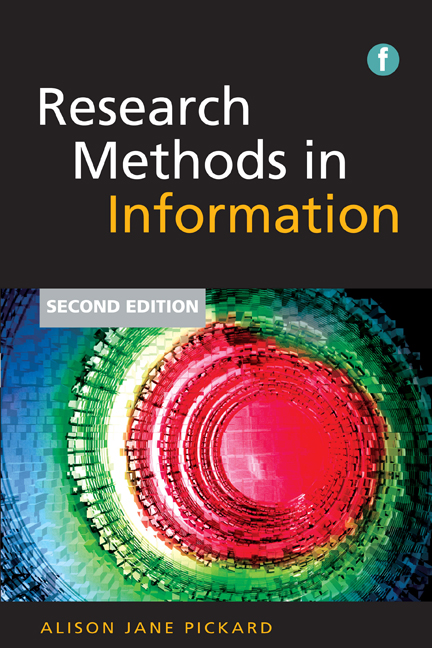Summary
Research is formalised curiosity. It is poking and prying with a purpose.
(Hurston, 1996, 143)The purpose of this handbook is to provide a reference guide to the research process for students and practitioners in the fields of information studies, communications, records management, knowledge management and related disciplines. The importance of research within these disciplines should not be underestimated, as ‘research skills are a prerequisite for those who want to work successfully in information environments, an essential set of tools which enable information workers to become information professionals’ (Harvey, 2000, xiv). Knowledge and experience of research is a fundamental part of what makes the ‘information professional’. Harvey provides a number of reasons why research is so important in the workplace; not least of them is the need to meet the ever-increasing requirements of accountability of services. In order to maintain dynamic and appropriate services we need to be constantly examining what we do and how we do it. When attempting to improve these services, research often offers the answer; research can help us identify problems in the workplace and very often provide solutions to those problems (Harvey, 2000).
Two years after the publication of the first edition of this text the ‘Library and Information Science Research Coalition’ was formed as a three-year project to: ‘bring together information about LIS research opportunities and results; encourage dialogue between research funders; promote LIS practitioner research and the translation of research outcomes into practice; articulate a strategic approach to LIS research; promote the development of research capacity in LIS.’ (LIS Research Coalition, 2012). This initiative has highlighted the significance of research methods to the LIS community and the need to continue to develop professional research excellence.
These are very practical, ‘real’ benefits of research but there is also the need to increase the body of knowledge that makes up the profession, to continue to engage in the questioning process that allows the professional to grow. This should never be underestimated. Even if information professionals are not active researchers all of the time, it is an inescapable fact that they must certainly be intelligent and informed consumers of research.
- Type
- Chapter
- Information
- Research Methods in Information , pp. xv - xxiiPublisher: FacetPrint publication year: 2013



